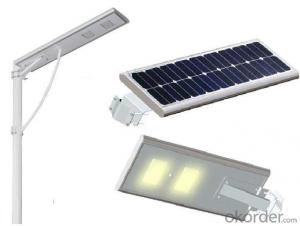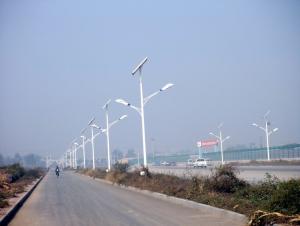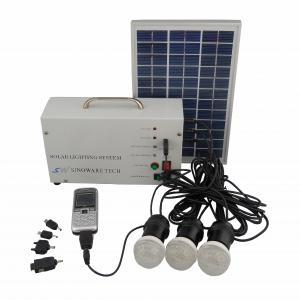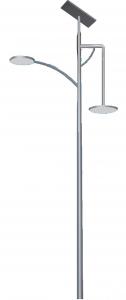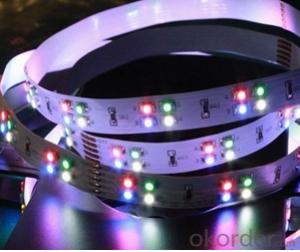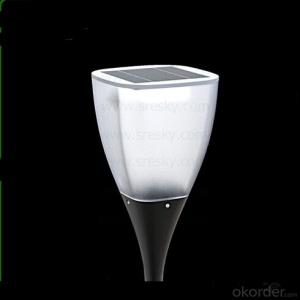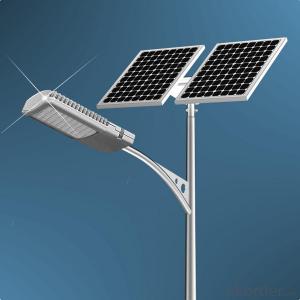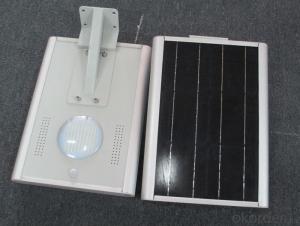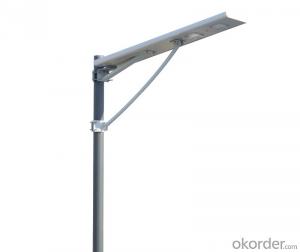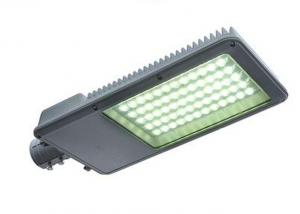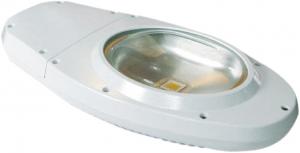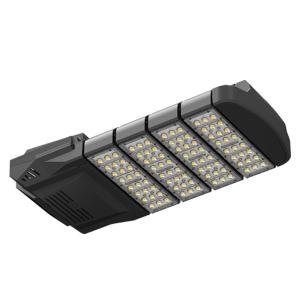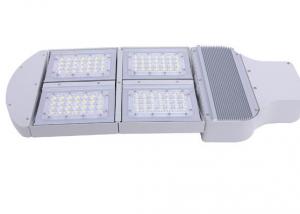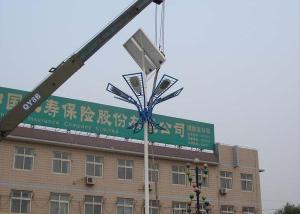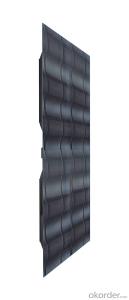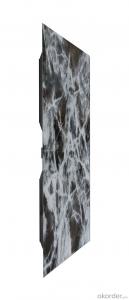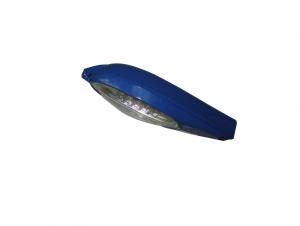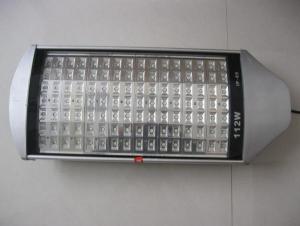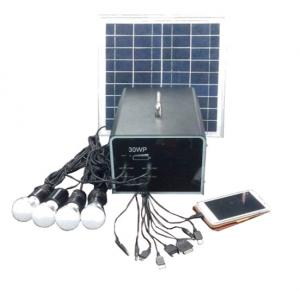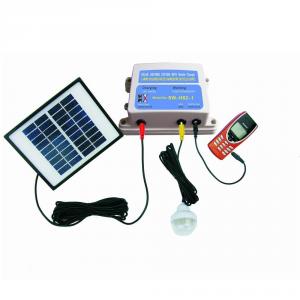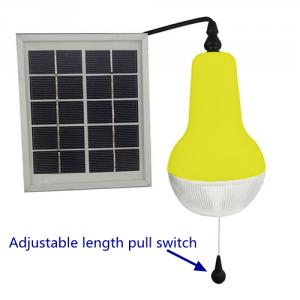All in One Solar Garden Light 60W
- Loading Port:
- Shanghai
- Payment Terms:
- TT OR LC
- Min Order Qty:
- 1 pc
- Supply Capability:
- 1000 pc/month
OKorder Service Pledge
Quality Product, Order Online Tracking, Timely Delivery
OKorder Financial Service
Credit Rating, Credit Services, Credit Purchasing
You Might Also Like

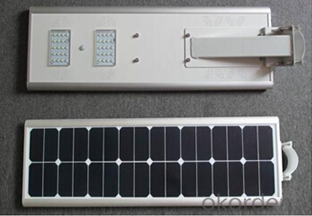
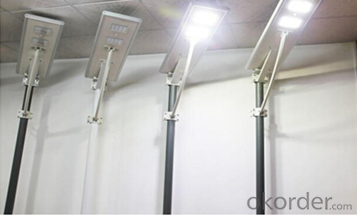
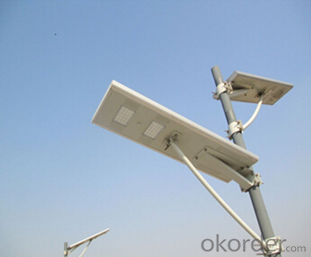
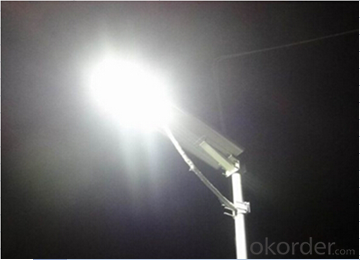
| 1. Discription: All in One Solar Garden Light | ||
| 2. Characteristics: 60W 7-9M High 6000-6600 LM | ||
| 3. Specification: | ||
| Solar panel | Power | 18V80W (American Sunpwer brand high efficiency mono-crystalline) | ||
| using life | 25 years | |||
| Battery | Model | lithium battery(12.8V/33AH Grade A mottcell Brand ) | ||
| Life span | 5 years | |||
| LED lamp | Power | 12V 60W | ||
| LED Brand | Bridgelux | |||
| Lumen(LM) | 6000-6600lm | |||
| LIfe span | 50000hrs | |||
| Light angle | 120° | |||
| charge time | Solar battery charging | 6hrs (Intense solar light charging) | ||
| Discharge time | full power | >15 hrs | ||
| Power saving mode | >30hrs | |||
| Working temperature | Unit( ℃ ) | -30℃~+70℃ | ||
| Color temperature | Unit(k) | 2700-7000k | ||
| Installation height | Unit(m) | 7 to 9 m | ||
| two light distance | Unit (m) | 25 to 30m | ||
| Lamp material | Aluminum Alloy | |||
| Certification | CE / ROHS / IP65 | |||
| Warranty | 2 years | |||
| Packing & weight | Product size | 1200*380*160mm | ||
| Product weight | 22kg | |||
| Packing carton | neutral | |||
| Packing size | 1230*460*230 mm | |||
| BOX | 1 set/box | |||
| Gross weight | 22.5kg | |||
| Container | 20'container | 280pcs | ||
| 40' container | 620pcs | |||
- Q:Are solar lights resistant to dust and dirt?
- Yes, solar lights are generally resistant to dust and dirt. Most solar lights are designed with a protective casing that prevents dust and dirt from entering and damaging the internal components. Additionally, the solar panels are usually made with a protective coating that helps repel dust and dirt, ensuring they continue to function optimally. However, it is important to note that over time, dust and dirt may accumulate on the surface of the solar panels, which can reduce their efficiency. Therefore, periodic cleaning and maintenance are recommended to keep solar lights performing at their best.
- Q:Are solar lights suitable for mining operations?
- Solar lights can be a suitable lighting solution for mining operations, depending on the specific needs and conditions of the mine. Here are a few factors to consider: 1. Remote locations: Many mining operations are located in remote areas where access to electricity is limited or non-existent. In such cases, solar lights can provide a cost-effective and sustainable lighting solution without the need for expensive infrastructure development. 2. Reliability and durability: Solar lights are designed to withstand harsh environmental conditions, making them suitable for mining operations that often face extreme weather, vibrations, and dust. They are built with high-quality materials to ensure long-term reliability and minimal maintenance requirements. 3. Safety and security: Proper lighting is crucial for ensuring the safety and security of mining operations. Solar lights can illuminate working areas, walkways, and access points, reducing the risk of accidents and enhancing overall site security. 4. Energy efficiency: Mining operations consume significant amounts of energy, and using solar lights can help reduce the reliance on fossil fuels and lower operational costs. Additionally, solar lights have built-in energy-saving features such as motion sensors, allowing for further optimization of energy usage. 5. Environmental impact: Mining operations often have a significant environmental footprint. By using solar lights, mining companies can reduce their carbon emissions and contribute to a cleaner and more sustainable energy future. However, it is important to assess the specific lighting needs and requirements of the mining operation before implementing solar lights. Factors such as the intensity and coverage of light required, the availability of sunlight in the area, and the overall energy demand of the mine should be taken into account. Consulting with experts in solar lighting solutions can help determine the suitability and feasibility of solar lights for a particular mining operation.
- Q:Can solar lights be used for rooftop gardens or greenhouses?
- Yes, solar lights can definitely be used for rooftop gardens or greenhouses. They provide a sustainable and cost-effective lighting solution, eliminating the need for electrical wiring. Solar lights harness energy from the sun, storing it in batteries to power the lights during the night. They are easy to install, environmentally friendly, and can enhance the aesthetics of the rooftop garden or greenhouse while ensuring plants receive adequate lighting.
- Q:Are solar lights suitable for use in national parks and protected areas?
- Solar lights are an excellent option for national parks and protected areas due to several reasons. Firstly, they are environmentally friendly as they run on renewable energy from the sun, aligning with the conservation goals of these areas. Secondly, solar lights are energy-efficient, utilizing solar energy during the day to charge their batteries and power the lights at night. This reduces the carbon footprint and decreases reliance on traditional electricity sources. Moreover, installing solar lights results in cost savings as they do not require electricity from the grid. This is especially beneficial for remote national parks and protected areas that are far from the power grid. In terms of installation and maintenance, solar lights are relatively easy to set up and require minimal upkeep. This makes them a practical choice for areas with limited infrastructure and manpower, while also eliminating the risk of damaging the surrounding ecosystem due to the absence of wiring. Additionally, solar lights enhance safety and security within these areas by providing well-lit paths, trails, and campsites. This helps prevent accidents, deters wildlife from approaching human settlements, and discourages illegal activities. Furthermore, solar lights can be designed to minimize light pollution and preserve the natural darkness of national parks and protected areas known for their dark skies and stargazing opportunities. Overall, solar lights offer a sustainable and practical lighting solution for national parks and protected areas. They contribute to conservation efforts, reduce energy consumption, enhance safety, and minimize operational costs and environmental impact.
- Q:Are solar lights compatible with mobile app control?
- Yes, some solar lights are compatible with mobile app control. These lights typically have built-in Wi-Fi or Bluetooth connectivity that allows users to control and monitor their settings, such as brightness levels, timers, and even color options, through a dedicated mobile app.
- Q:Can solar lights be used for outdoor movie screenings?
- Yes, solar lights can be used for outdoor movie screenings. They are a great energy-efficient option for providing lighting during outdoor events. Solar-powered lights can illuminate the outdoor movie screening area without the need for electricity, making them an environmentally friendly choice.
- Q:Are solar lights suitable for illuminating outdoor stairs or steps?
- Outdoor stairs or steps can indeed be illuminated effectively using solar lights. These lights have gained popularity for outdoor lighting due to their convenience and energy efficiency. They operate solely on solar power, eliminating the need for any wiring or electricity. As a result, they are a convenient option that can be easily installed without professional assistance. Solar lights are specifically designed to collect and store sunlight energy during the day. Once it gets dark, built-in sensors automatically activate the lights, ensuring that your outdoor stairs or steps are well-lit even in low light conditions. This feature enhances safety and usability. In addition to their functionality, solar lights offer a range of designs and styles to complement your outdoor decor. Whether you prefer subtle pathway lights or brighter floodlights, there are solar light options available to cater to your specific preferences. It is worth mentioning that the effectiveness of solar lights can be influenced by factors such as sunlight exposure and the quality of the solar panels. It is advisable to opt for solar lights with high-quality panels and position them in areas where they can receive maximum sunlight. Regular maintenance and cleaning of the solar panels will also contribute to optimal performance. Overall, solar lights are a practical and suitable choice for illuminating outdoor stairs or steps. They offer a cost-effective and environmentally friendly solution while enhancing the safety and aesthetics of your outdoor space.
- Q:Are solar lights suitable for remote research stations or camps?
- Yes, solar lights are highly suitable for remote research stations or camps. Since these stations or camps are often located in areas with limited access to electricity, solar lights provide a reliable and sustainable lighting solution. They harness solar energy during the day and store it in batteries, which can power the lights throughout the night. Solar lights are easy to install, require minimal maintenance, and eliminate the need for fuel or generators, making them a cost-effective and environmentally friendly option for remote locations.
- Q:How do I troubleshoot common issues with solar lights?
- To troubleshoot common issues with solar lights, start by checking the battery. Ensure it is properly inserted and has enough charge. Clean the solar panel to remove any dirt or debris that may be obstructing sunlight. Verify that the light is placed in an area that receives sufficient sunlight during the day. If the light still doesn't work, consider replacing the battery or checking the wiring connections.
- Q:Do solar lights have a built-in sensor for detecting darkness?
- Yes, solar lights typically have a built-in sensor called a photovoltaic cell or a light sensor that detects darkness and automatically turns on the light when it gets dark.
1. Manufacturer Overview |
|
|---|---|
| Location | |
| Year Established | |
| Annual Output Value | |
| Main Markets | |
| Company Certifications | |
2. Manufacturer Certificates |
|
|---|---|
| a) Certification Name | |
| Range | |
| Reference | |
| Validity Period | |
3. Manufacturer Capability |
|
|---|---|
| a)Trade Capacity | |
| Nearest Port | |
| Export Percentage | |
| No.of Employees in Trade Department | |
| Language Spoken: | |
| b)Factory Information | |
| Factory Size: | |
| No. of Production Lines | |
| Contract Manufacturing | |
| Product Price Range | |
Send your message to us
All in One Solar Garden Light 60W
- Loading Port:
- Shanghai
- Payment Terms:
- TT OR LC
- Min Order Qty:
- 1 pc
- Supply Capability:
- 1000 pc/month
OKorder Service Pledge
Quality Product, Order Online Tracking, Timely Delivery
OKorder Financial Service
Credit Rating, Credit Services, Credit Purchasing
Similar products
New products
Hot products
Related keywords
